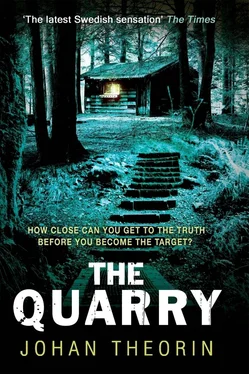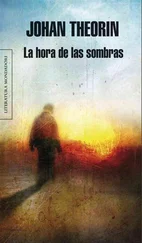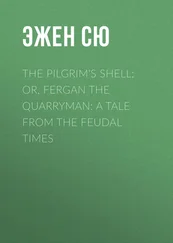‘Is everyone here?’ he said, looking around.
‘I think so,’ said Vendela.
Max nodded, tapped his wine glass and raised his voice. ‘Sit down, everyone! Anywhere you like!’
The murmur of conversation died away, everyone made their way to the table and Max smiled at them.
Vendela could see that he had slipped into the role of party host, like a real entertainer. He loved the role; it was his confidence when he was the centre of attention that had made her fall for him, once upon a time.
‘Welcome, everyone.’ Max raised his glass and went on: ‘My dear wife and I have spent all day in the kitchen, and many of the recipes are taken from my new cookery book... so we hope you enjoy what we have to offer!’
Gerlof had decided to keep his distance from the new neighbours, but after a couple of glasses of whisky, it was actually rather pleasant on their big wooden veranda.
They had brought out a leather armchair and settled him at one end of the table like a patriarch. Vendela Larsson, their little hostess, had placed a blanket over his legs and he didn’t need to reach for anything — everyone kept passing him food and drink. He leaned back comfortably, sitting next to John on the oiled decking.
Two large glasses of whisky were actually one too many for him, and he hoped someone would offer to push him home in the wheelchair — and preferably not too late. It was already half past eight and the drink was starting to make him feel sleepy, but nobody seemed to be in any hurry to finish eating. They hadn’t even got to the pudding.
‘So, Gerlof... did you and John work with the stone down here?’ asked Per Mörner, nodding in the direction of the dark quarry.
‘Only in the summer when we were little,’ said Gerlof.
‘Before we went to sea,’ John added.
‘Were you quarrymen?’ asked Max Larsson.
Gerlof shook his head. ‘We weren’t strong enough.’
‘Really? Was it hard work, then?’
Gerlof didn’t say anything. He was wondering whether these families from the mainland realized that the quarry was an old workplace, or whether they saw it only as some kind of artistic creation, built up above the shore for their amusement, with charming piles of stones here and there and little pools of rainwater in which they could bathe.
He knew they would never understand the hard work that had been necessary in order to win the struggle against the rock face, hacking out the limestone day after day with nothing but chisels and hammers and crowbars. His friend Ernst had once said that during his forty years in the quarry he must have hacked out more than fifty thousand metres of kerbstones for flights of steps, roads and pavements in the towns all around the Baltic Sea.
And then there were the gravestones. There had always been a need for gravestones, of course, even when times were hard.
‘No, we never became quarrymen.’ Gerlof looked at John. ‘But we were good errand boys, do you remember that? We fetched tools and cleaned up the kelpie hut, and so on.’
‘The kelpie hut?’ said Per.
‘That’s what we called the place where the workers took their breaks.’
It struck Gerlof that he and John might well be the last people in the village who remembered that name. The quarrymen were gone, after all.
Gerlof took a sip of whisky and went on: ‘In the old days people believed that the trolls lived down in the quarry, but I came across quite a different creature when I was little...’
He saw John’s shoulders slump; he had heard this story many times before. But he carried on anyway.
‘When I was eight or nine I found a crane down here, one evening when all the workers had gone home. It was a youngster, lying on the gravel. I don’t know where it came from, but it was too small to fly, and there was no sign of its parents. Perhaps the fox had got them... So I carried it home to our outhouse and laid it down on some hay, and started feeding it with old potatoes. And when it was big enough I let it out — but it refused to fly away. It had grown attached to me.’ Gerlof smiled to himself. ‘It followed me around all summer, like a two-legged dog. And if I got tired of it and tried to sneak off, it flew up in the air and circled around over the village until it found me again. So I had a pet crane for a whole summer, until the autumn came and it flew south with the others.’
Everybody around the table smiled at the story.
‘And when you went to sea,’ said Per, ‘was that a full-time job?’
‘No, because in the winter the cargo ships froze in the sea down in the harbour, so we couldn’t work then,’ said Gerlof. ‘We came ashore in December and took it easy for a few months, when the sea was covered in ice. We would carry out repairs to our ships, check the engine and mend the sails. For the rest of the time we sat waiting for the spring with the other skippers.’ He looked over at the empty quarry. ‘But of course they carried on quarrying the limestone all through the winter, piling it up down by the harbour. Thousands of tons. Then in the spring the sun came and melted the ice out in the sound, and it was time to go to sea again.’
‘Out at sea in the spring breeze,’ said Marie Kurdin. ‘That must have been a fantastic feeling.’
Gerlof shook his head. ‘It wasn’t quite that romantic.’
‘Were there many accidents?’ said Per. ‘Ships running aground, that sort of thing?’
‘Not for us,’ replied John. ‘We never ran aground.’
‘No, not in thirty years,’ said Gerlof. ‘One of our cargo ships sank in a fire, but we never ran aground... But it was hard work being at sea, hard and lonely. I tried to take my wife and daughters along sometimes in the summer holidays, but most of the time John and I were alone on board, day after day. The family had to stay at home.’
He glanced sideways in the direction of the quarry, and thought about his late wife. Obviously he didn’t believe in trolls. But who was the visitor Ella had seen when he was away at sea?
Vendela had drunk a couple of glasses of wine, and was at last beginning to relax at her own party, when she suddenly heard a loud voice from the other side of the table. It was probably also under the influence of quite a lot of wine, and sounded particularly sure of itself.
‘No, I don’t pay tax in Sweden,’ said Max. ‘My company isn’t registered here, it would be too expensive... Besides, I don’t believe in the Swedish tax system. All it does is oppress people.’
Max smiled across the table, but Vendela felt compelled to smooth over the situation. ‘Of course you pay tax here, Max.’
He looked at her and stopped smiling. ‘When I have to, yes. But as little as possible.’
Then he raised his glass, as if everyone around the table was a member of the same financial club, until an equally loud voice chipped in: ‘I’m quite happy to pay tax.’
It was Christer Kurdin.
‘Really?’ said Max. ‘And how do you earn your money?’
‘Internet security,’ said Kurdin tersely.
He had also drunk a fair amount of wine; there was an almost empty bottle of white Bordeaux next to his plate, and he was having some difficulty focusing as he looked at Max.
‘I’m sick and tired of people like you,’ he went on.
‘I’m sorry?’ said Max.
‘People like you who try to get out of paying your taxes... I’m sick and tired of all the fiddling.’
Max lowered his glass. ‘I don’t fidd—’
‘I mean, you drive on the roads in Sweden,’ Christer Kurdin broke in.
‘What?’
‘I presume you drove across the Öland Bridge to get here?’
Max frowned. ‘What’s that got to do with anything?’
Читать дальше












